12 English Phrases About Superstitions and Luck
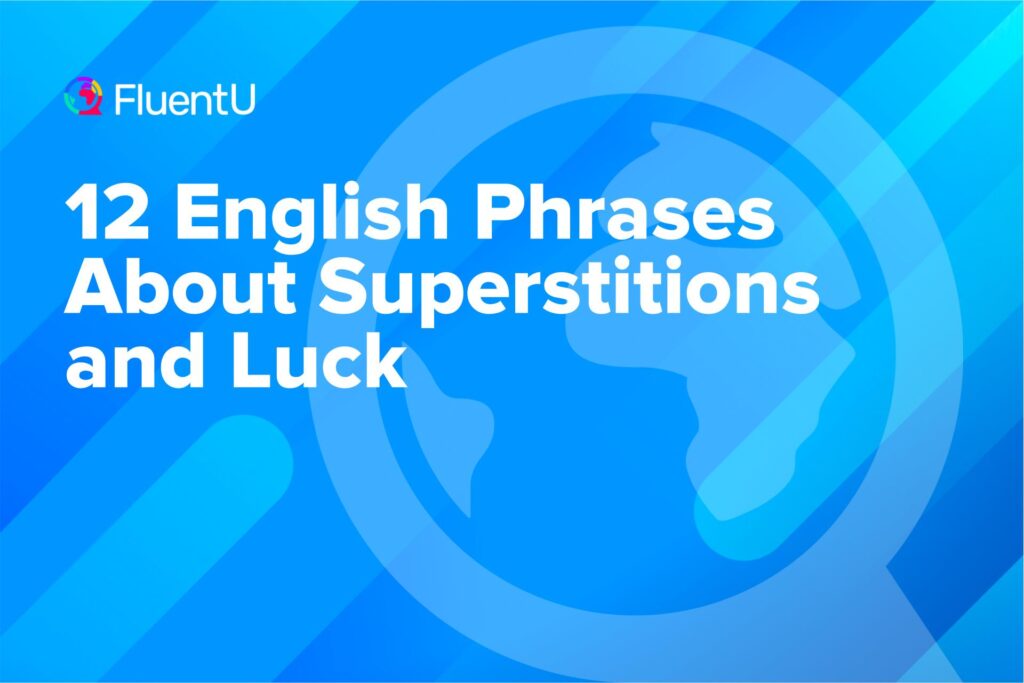
Every language and culture has superstitions to push out the bad and bring in the good; English is no different.
Say hello to the language of luck with the list of traditional phrases and idioms below. From horseshoes and pots of gold to the number seven, you’ll still hear these mentioned a lot today—and some of them come with interesting stories too.
Download: This blog post is available as a convenient and portable PDF that you can take anywhere. Click here to get a copy. (Download)
1. Lucky Number Seven
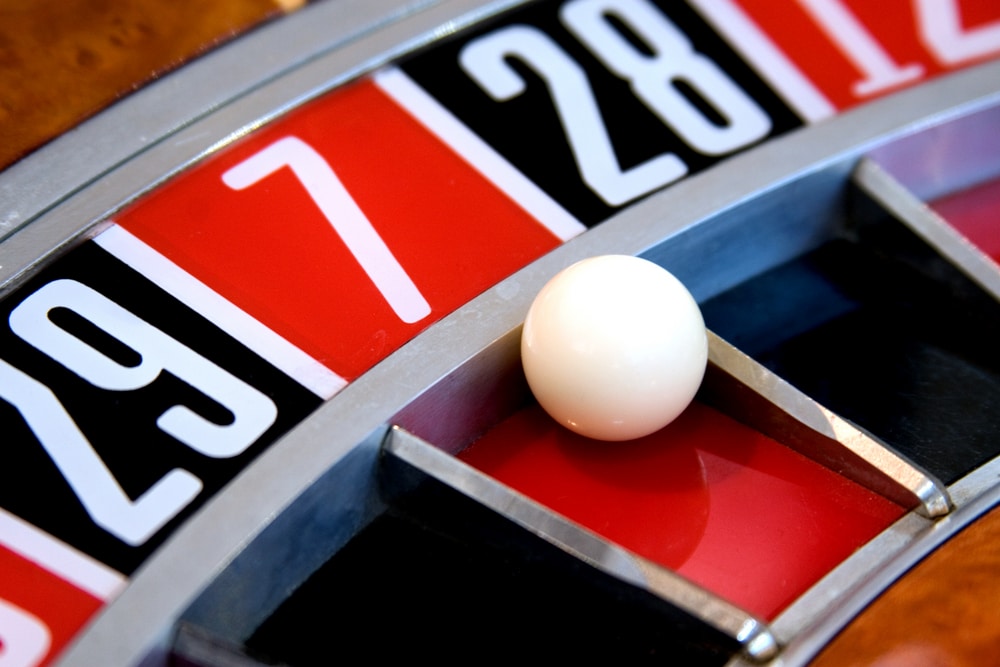
Everyone from gamblers (people who bet money, usually at casinos) to the very religious considers the number seven to be lucky. “Lucky 7” has been a part of Western culture for centuries.
Different religions also have some lucky sevens. The Greeks and Romans believed there were seven gods and goddesses. Islam has seven holy temples. The Hebrew Bible says the world was created in seven days. The Christian New Testament describes the end of the world with seven plagues (deadly diseases) and seven angels.
2. Seventh Heaven
You will sometimes hear English speakers talk about “all the way to seventh heaven.” That means the highest level of good fortune or good life.
3. Luck of the Draw
Gamblers consider seven to be very lucky if they are playing on slot machines (a casino game). Three sevens in row means a blackjack (21) and a big money win. “Luck of the draw” means that your good luck comes from chance, not any skill.
4. Lady Luck
Card players sometimes talk about “Lady Luck,” a symbol of games going well for them. She is always pictured with dice-shaped earrings showing the number seven.
5. The Luck of the Irish
You will hear about “the luck of the Irish.” That is an old superstition that Irish people (from Ireland) have more luck than others, partly because they have one of the most popular symbols of luck: the four-leaf clover.
6. Four-leaf Clover
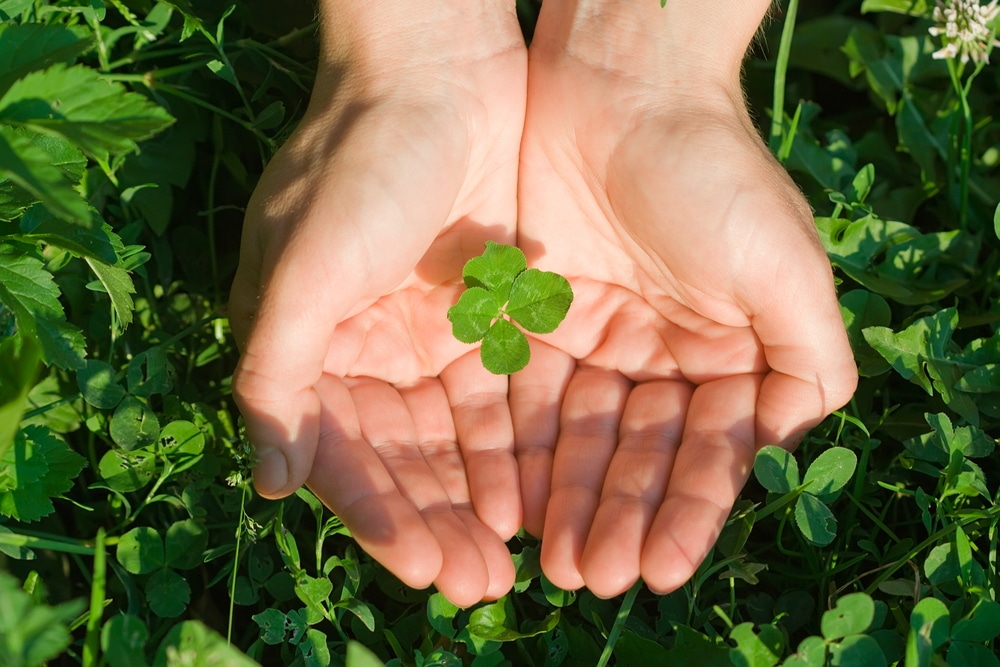
The Irish say their island has more four-leaf clovers than anywhere else in the world. Clovers grow all around the globe, but the lucky charm four-leaf version does come from ancient Ireland.
Ancient Irish teachers, holy men and magicians believed carrying four-leaf clovers helped stop bad luck or evil.
Children in the Middle Ages looked for four-leaf clovers in meadows and gardens, thinking they might see a fairy nearby.
Finding a true four-leaf clover is not easy. The odds (chances) of finding a four-leaf clover are one in 10,000.
However, you can increase your chances at “the luck of the Irish” by growing four-leaf clovers. Find a patch with many clovers, dig them up by the roots, and transport them to your own garden.
7. Leprechauns, Rainbows and Pots of Gold
Around St. Patrick’s Day in English-speaking countries, you will see lots of leprechauns, little red-haired men dressed in green. Well, maybe not real leprechauns, but paper pictures will be everywhere.
Leprechauns are said to be “looking for a pot of gold at the end of the rainbow.” That phrase is where idioms such as “chasing the rainbow” and “pot of gold” come from. They’re about hoping for a better life, sometimes unrealistically.
8. Horseshoe
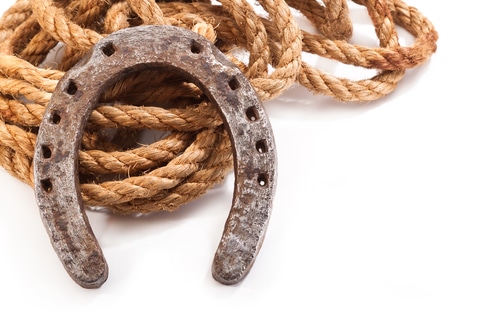
Horseshoes are also lucky.
A horseshoe hung over the door in the front of a house collects all the good luck passing by. Make sure the ends of the horseshoe are pointing up, or else the good luck will fall out.
Sailors even hang horseshoes in their ships to bring good luck.
Horseshoes are made of iron, and there are many superstitions about that metal. Iron is super strong and can withstand fire.
Even the blacksmiths who make the horseshoes are considered magical because they bend iron with fire. In ancient times, blacksmiths performed wedding ceremonies because they were thought to bring the bride and groom good luck.
9. Strike while the iron is hot
A popular blacksmith idiom is “Strike while the iron is hot.“ That means take your chance while you have the opportunity because you don’t know if your luck will be good later. Iron can only be bent while it is hot, not after it has cooled.
10. A Lucky Bride
Some people think that a good wedding day means a happy future for the couple. There are lots of tricks and phrases to get the best good luck on one’s wedding day.
A bride who is marrying a wealthy (rich) man is said to be “sitting pretty.” She has time to relax and make herself beautiful. Anybody who has time to enjoy their good fortune is described as sitting pretty.
Brides in the West have this saying: “Wear something old, something new, something borrowed, something blue.” That means wear something old to represent the past, something new to represent the future, something borrowed to represent happiness and something blue to show love and purity. (If you’re interested in more English idioms with colors, check these out.)
Rain can bring good or bad luck on a wedding day, depending on the tradition. Some European traditions say rain is a blessing that washes away all bad things. Others consider rain bad luck because it messes up outdoor wedding plans. Another saying is “Happy is the bride whom the sun shines upon.”
11. Old Wives’ Tales
Here’s a great story or “old wives” tale: People in the southern United States sometimes bury (put in the ground) a bottle of bourbon (whiskey) a month before the wedding to prevent rain and bring good luck. “To bury the bourbon” means to do something to make your luck better.
Even leaving the wedding includes lots of superstitions. English Tudor tradition says that you should throw shoes at the bride and groom as they leave the church. Now, people just tie old shoes to the back of the car in which the newlyweds leave the wedding.
Romans believed wheat was a symbol of fertility (able to have lots of babies), so all sorts of wheat grains were included in the wedding ceremony. The Hebrew Bible describes the harvest as “separating the wheat from the chaff,” meaning separating the good from the bad.
Happy couples wanted good things, but often wheat was expensive. So Americans started to throw rice (a cheaper grain) at the bride and groom for good luck after a wedding.
That tradition has mostly gone away because rice is hard to clean up after the wedding. Americans now throw seeds, blow bubbles and light sparklers instead.
12. Knock on Wood
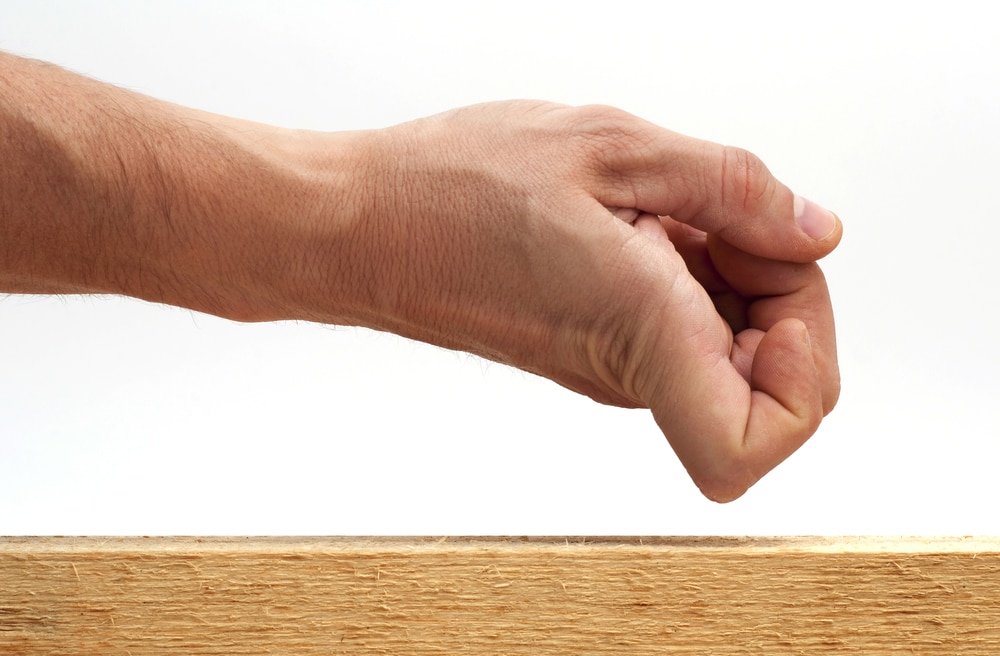
This idiom about good luck is a little complicated, but it’s one you will hear often.
Let’s say you believe you did really well on a test, or that your boss is going to give you more money. You are with friends and say: “Good things are coming my way.”
That’s when you realize you may cause something bad by presuming (believing when you don’t know for sure) that you will have good luck.
Just as soon as you finish your boast, you quickly add, “Knock on wood.” Then, you find something made of wood (often a table or chair nearby) and tap your knuckles on it, like how you knock on a door.
Yes, English speakers really do knock on wood. Now, you will know what it means when you hear it.
These English phrases about luck will make you sound like an advanced English learner. So whether you are cheering for your favorite football team or just need some good fortune, try out these lucky phrases and bring a little English language luck your way!
Download: This blog post is available as a convenient and portable PDF that you can take anywhere. Click here to get a copy. (Download)
And One More Thing...
If you like learning English through movies and online media, you should also check out FluentU. FluentU lets you learn English from popular talk shows, catchy music videos and funny commercials, as you can see here:
The FluentU app and website makes it really easy to watch English videos. There are captions that are interactive. That means you can tap on any word to see an image, definition, and useful examples.
For example, when you tap on the word "searching," you see this:
Learn all the vocabulary in any video with quizzes. Swipe left or right to see more examples for the word you’re learning.

FluentU helps you learn fast with useful questions and multiple examples. Learn more.
The best part? FluentU remembers the vocabulary that you’re learning. It gives you extra practice with difficult words—and reminds you when it’s time to review what you’ve learned. You have a truly personalized experience.
Start using the FluentU website on your computer or tablet or, better yet, download the FluentU app from the iTunes or Google Play store. Click here to take advantage of our current sale! (Expires at the end of this month.)







